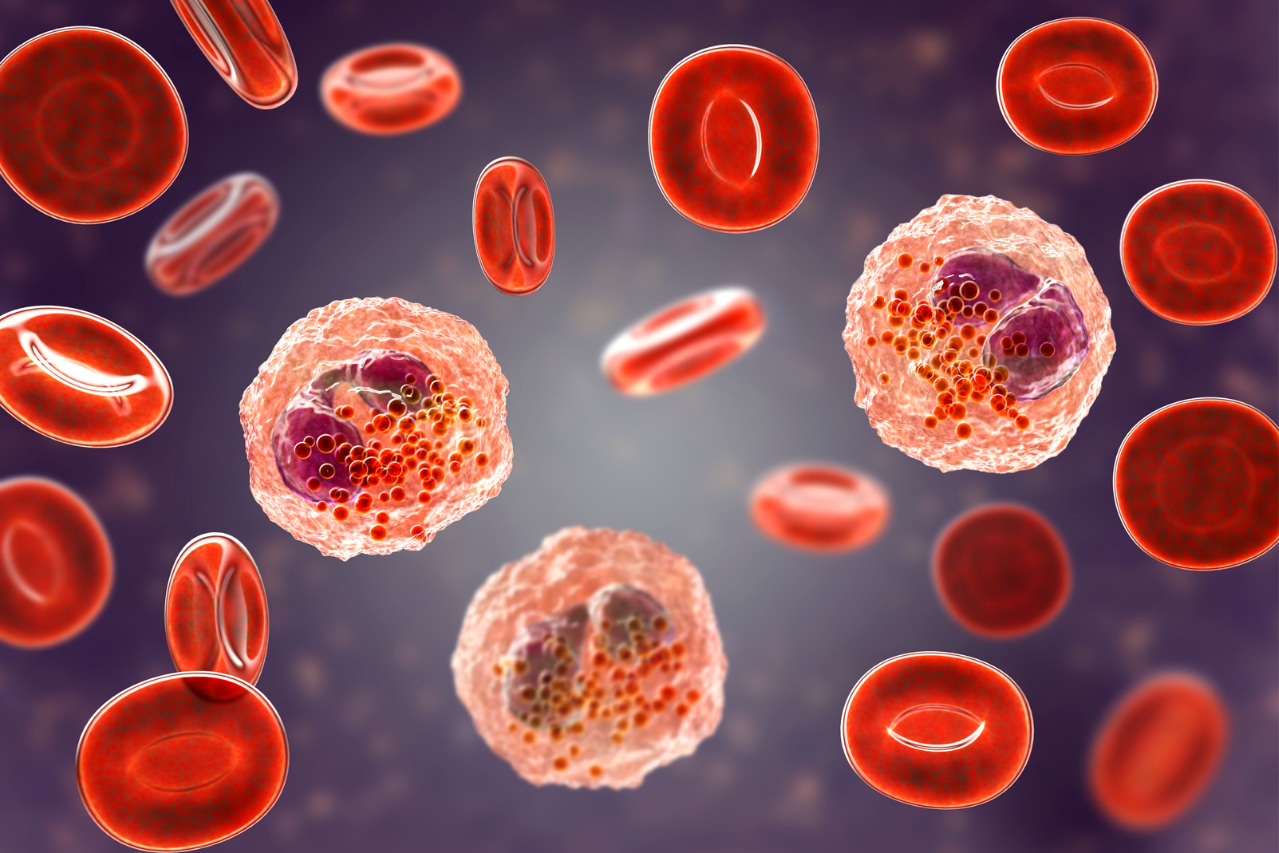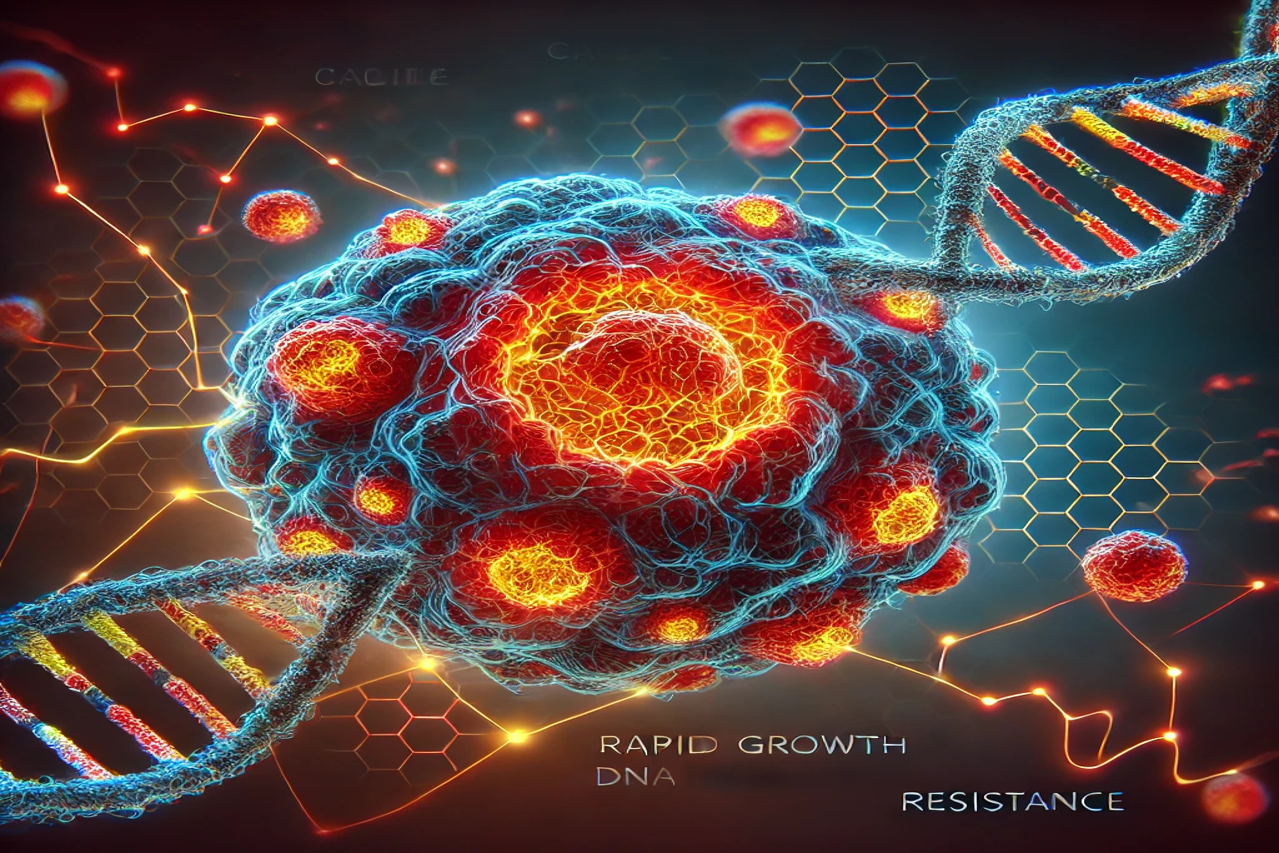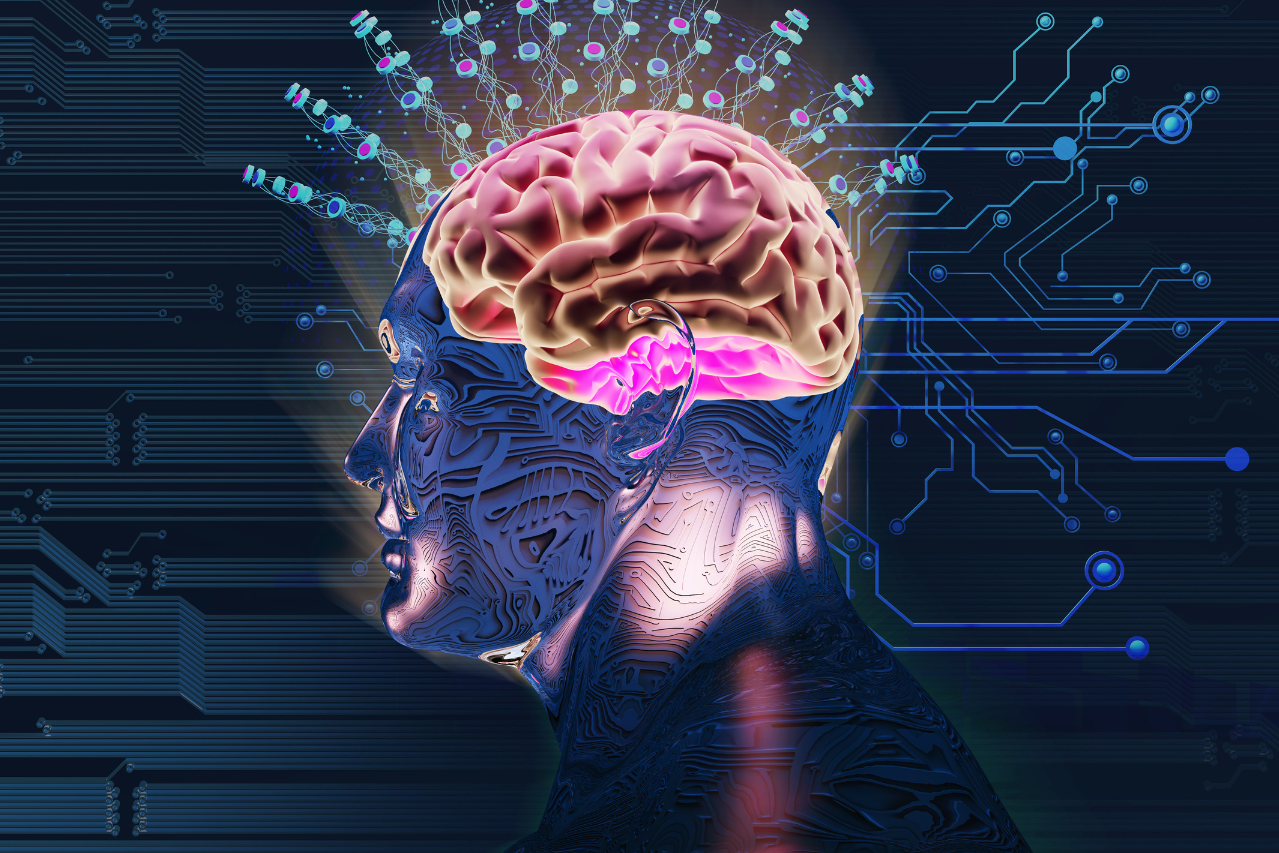In recent years, artificial intelligence (AI) has shown immense potential in transforming various fields of healthcare, with immunoscience being one of the most promising areas. As researchers strive to understand and harness the immune system’s complexities, AI is making groundbreaking strides in diagnosing diseases, personalizing treatments, and even guiding vaccine development. But what exactly is AI-powered immunoscience, and how is it changing the landscape of medicine?
Understanding AI in Immunoscience
Immunoscience is the study of the immune system, its functions, and how it combats diseases. It is essential to disease prevention, treatment, and understanding immune-related conditions. AI-powered immunoscience leverages machine learning, deep learning, and advanced data analytics to process and interpret complex biological data, allowing scientists and healthcare professionals to uncover patterns and insights previously hidden within vast datasets, enabling personalized treatment plans.
AI’s applications in immunology span across:
- Analyzing Immune Cell Data
- Predicting Patient Responses to Immunotherapies
- Accelerating Vaccine Development
- Improving Autoimmune Disease Research
Each of these areas demonstrates AI’s potential to personalize and enhance immune-related healthcare in ways that were unimaginable a decade ago.
AI in Immunotherapy: Personalized Approaches to Cancer Care
One of the most impactful uses of AI in immunoscience is in cancer immunotherapy. Immunotherapy utilizes the body’s immune system to identify and destroy cancer cells, but not all patients respond to it equally. Here, AI steps in to predict which patients are most likely to benefit from specific immunotherapy options, making treatment more personalized and effective.
For example, the National Institutes of Health (NIH) has developed an AI tool that uses clinical data to determine a cancer patient’s potential response to immune checkpoint inhibitors—drugs that help the immune system recognize and target cancer cells. Through advanced algorithms, AI can examine the genetic, cellular, and environmental factors influencing each patient’s response, allowing oncologists to tailor treatments precisely.
Additionally, a study published in Nature highlights how an AI model developed for analyzing histopathological images can predict the efficacy of immunotherapy by examining the tumor microenvironment. This predictive model extracts and interprets critical features from pathology slides, enhancing treatment decisions and contributing to better outcomes for patients.
Accelerating Vaccine Development with AI
AI-powered immunoscience is also reshaping how vaccines are designed and developed. Traditionally, vaccine research has been a lengthy process, but AI enables researchers to identify potential antigens and predict immune responses faster and with higher accuracy.
A prominent example is the Human Immunome Project, an initiative using AI to understand immune system variability and optimize vaccine development. By analyzing extensive data on how the immune system responds to various pathogens, this project aims to accelerate the development of vaccines and improve their effectiveness.
Machine learning algorithms are also being used to predict the efficacy of vaccine candidates by analyzing viral mutation patterns. This capability is especially crucial in combating rapidly evolving viruses like influenza or COVID-19, where anticipating viral changes can significantly enhance vaccine efficacy.
Advancements in Autoimmune Disease Research Through AI
Autoimmune diseases, where the immune system mistakenly attacks the body’s tissues, affect millions worldwide. Due to the complexity of these conditions, AI-powered analysis is instrumental in identifying biomarkers and better understanding disease mechanisms, which can lead to more targeted and effective treatments.
For instance, AI models trained on immune cell interaction data have provided insights into conditions like rheumatoid arthritis and multiple sclerosis. By studying how immune cells behave in these diseases, AI helps researchers pinpoint specific immune responses contributing to the disease. This knowledge is essential for developing new therapies that target only the dysfunctional immune pathways, minimizing side effects and improving patient outcomes.
The Data and AI Approaches Powering Immunology
In AI-powered immunoscience, a variety of data sources come together to create a comprehensive view of immune function and behavior. By analyzing these datasets with sophisticated machine learning (ML) techniques, AI systems can uncover patterns and relationships that are otherwise difficult to detect. Here’s a look at some of the main data types and AI approaches that drive breakthroughs in immunology.
Types of Data in AI-Powered Immunoscience
- Immune Cell Sequencing Data
- Single-Cell RNA Sequencing (scRNA-seq): AI models analyze data from single-cell RNA sequencing to understand gene expression within individual immune cells, helping researchers identify cell types, understand immune cell functions, and discover how different cells react to pathogens or therapies.
- T-Cell Receptor (TCR) and B-Cell Receptor (BCR) Sequencing: Sequencing TCR and BCR data allows AI to study immune cell responses in detail, particularly how T-cells and B-cells recognize pathogens, which is crucial for developing personalized immunotherapies.
- Genomic Data
- Genomic data includes DNA sequences that reveal genetic predispositions to immune-related diseases and help predict patient responses to immunotherapies. By analyzing genetic variations and mutations, AI systems can support research into autoimmune diseases, allergies, and vaccine responses.
- Proteomic and Metabolomic Data
- AI helps analyze protein expressions (proteomics) and metabolites (metabolomics) produced by immune cells to understand immune cell activity at a biochemical level. This data is essential for studying how the immune system interacts with diseases and drugs.
- Histopathology Images
- Histopathology, or the study of tissue samples, generates vast image data. AI algorithms analyze these images to identify immune cell types, interactions, and changes within tissues, aiding in predicting immunotherapy responses and assessing treatment outcomes.
- Electronic Health Records (EHRs) and Clinical Data
- AI systems leverage patient health records, including lab results, clinical notes, and treatment histories, to assess immune system responses over time, helping clinicians provide personalized care.
AI Approaches in Immunoscience
Different machine learning and deep learning methods are applied to analyze these diverse datasets, each suited to specific challenges in immunology:
- Supervised Learning: Used for identifying immune cell types or classifying diseases based on labeled data, crucial for predicting responses to specific immunotherapies.
- Unsupervised Learning: Helpful for discovering unknown immune cell interactions, clustering cells into subtypes based on shared characteristics.
- Reinforcement Learning (RL): Applied in simulations of immune response, where AI systems model how immune cells might behave under different conditions.
- Deep Learning (DL) and Neural Networks: Especially useful for interpreting complex images like histopathology, where convolutional neural networks detect intricate features within tissues.
- Natural Language Processing (NLP): Extracts insights from clinical notes and literature, assisting researchers in staying updated on the latest findings.
- Ensemble Learning: Combines multiple models for improved accuracy, integrating insights from various data types to provide a comprehensive outlook on immune function.
AI-Powered Workflows in Immunology
In practice, AI in immunology often involves a combination of these data types and AI methods in a comprehensive workflow:
- Data Collection and Preprocessing: Gathering and cleaning data from immune cell sequencing, histopathology, and EHRs.
- Feature Extraction and Analysis: Applying supervised and unsupervised learning to extract meaningful features, such as immune cell types or genetic markers.
- Predictive Modeling: Developing predictive models to forecast treatment responses or disease progression.
- Outcome Interpretation and Visualization: Using deep learning for image analysis or NLP for clinical notes, helping clinicians interpret data meaningfully.
Ethical Considerations in AI-Powered Immunology
While AI in immunology offers promising advancements, it also raises ethical concerns, such as:
- Data Privacy and Security: Handling sensitive patient data necessitates stringent safeguards.
- Bias in AI Models: AI algorithms trained on non-diverse datasets risk making biased predictions, impacting patient care.
- Transparency: Ensuring that patients and clinicians understand AI’s role in healthcare decisions builds trust and encourages informed consent.
Addressing these issues requires collaboration between AI developers, immunologists, and regulatory bodies to establish ethical guidelines.
The Future of AI-Powered Immunoscience: What Lies Ahead?
Emerging applications, such as digital twins for simulating an individual’s immune response, could revolutionize personalized medicine. AI-driven models may soon predict how individual immune systems respond to new pathogens, enabling faster responses to emerging health threats. Experts foresee an era of predictive immunology, where diseases are identified and treated before symptoms even arise, enhancing diagnostic and treatment outcomes.
A digital twin is a virtual representation or digital replica of a physical object, system, or process that enables real-time monitoring, analysis, and simulation. Digital twins use data from sensors, devices, and other digital sources to mirror the behavior and characteristics of their real-world counterparts. These digital models continuously update and evolve as they receive new data, providing insights into current performance and future behavior.
Key Aspects of Digital Twins
- Data Integration: Digital twins collect data from IoT sensors, cloud storage, and other sources to reflect real-time changes and conditions in the physical system.
- Simulation and Analysis: These models can predict outcomes by simulating different scenarios, helping organizations optimize operations, perform maintenance, or make data-driven decisions.
- Feedback Loop: A continuous feedback loop allows the digital twin to adjust and reflect any changes in the physical world, ensuring accuracy.
Digital Twins in Healthcare and Immunology
In healthcare, digital twins have the potential to revolutionize personalized medicine by creating a virtual model of an individual’s body or immune system. For instance:
- Personalized Treatment: Digital twins can simulate how an individual’s immune system might react to specific drugs or treatments, helping doctors tailor therapies.
- Preventive Healthcare: With an individual’s digital twin, healthcare providers can predict and prevent potential health issues by simulating various scenarios.
In immunology, digital twins of immune systems can help predict how a person’s immune response will vary over time or under certain health conditions, advancing research and improving patient outcomes.
AI-powered immunoscience is reshaping healthcare, providing tools to improve diagnostics, create more personalized treatments, and foster deeper insights into the immune system. By merging the analytical power of AI with the complex science of immunology, healthcare professionals can offer patients a level of personalized care that was once only imagined.
Additional Resources
- The Cancer Genome Atlas: A resource for genetic and clinical data useful in immunotherapy research.
- Human Immunome Project: A global initiative focused on mapping the immune system’s responses to pathogens.
- Nature’s Immunology Journal: For the latest research articles on AI and immunology advancements.
Are you interested in how AI is changing healthcare? Subscribe to our newsletter, “PulsePoint,” for updates, insights, and trends on AI innovations in healthcare.




